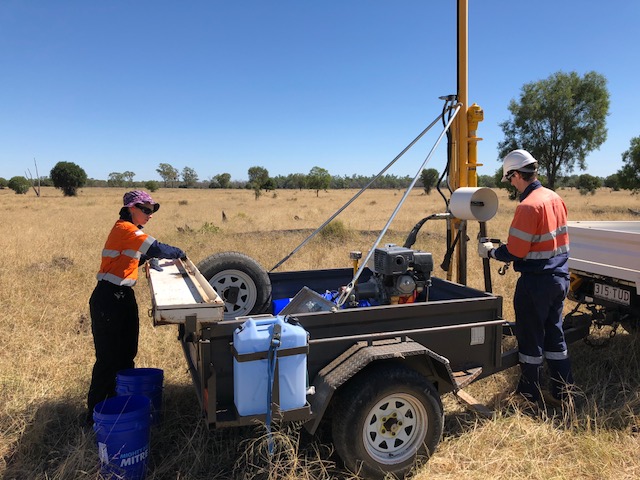CSIRO soils research recognised by scientific community
The soils study formed part of a broader CSIRO research program into the impacts of hydraulic fracturing on air, water and soils, conducted through the CSIRO’s Gas Industry Social and Environmental Research Alliance (GISERA).
The published soils study – Sorption, degradation and microbial toxicity of chemicals associated with hydraulic fracturing fluid and produced water in soils-was designed to simulate scenarios where a spill of hydraulic fracturing fluid or produced water may contaminate soils.
The overall objectives of the study were to better understand the environmental fate of chemicals present in hydraulic fracturing fluid and produced water, and their potential impacts on soil microbiological activities in soils contaminated with these fluids.
The CSIRO research team was led by Chief Research Scientist Dr Rai Kookana and included Mike Williams, Adrienne Gregg, Adelle Semmler, Jun Du and Simon Apte.
Rai said he was pleased – publication in Environmental Pollution meant the meticulous work done by the team would reach a wider scientific audience.

CSIRO soil sampling team
CSIRO water and soil sampling team.
Researchers studied the degradation and microbial toxicity of selected hydraulic fracturing chemical components including two biocides (methylisothiozolinone- MIT, chloromethylisothiozolinone- CMIT), a gel-breaker aid (triethanolamine -TEA), and three geogenic chemicals (phenol, m-cresol and p-cresol).
The chemicals were mixed with pure water, hydraulic fracturing fluids and produced water, and added to five different soil types (surface and subsurface soils) representing typical soils found in the Surat Basin, Queensland.
Results found that some types of biocides used in hydraulic fracturing fluids and geogenic (naturally occurring) chemicals present in produced water were completely degraded in soil samples within two to three days.
The soils study showed that hydraulic fracturing fluid can have significant detrimental impact on soil microbial functions, especially on nitrogen cycling. Therefore, extra care should be taken to avoid any spill of hydraulic fracturing fluid during the operations.
The broader study represented the most comprehensive investigation into hydraulic fracturing activities in Australia to date.
